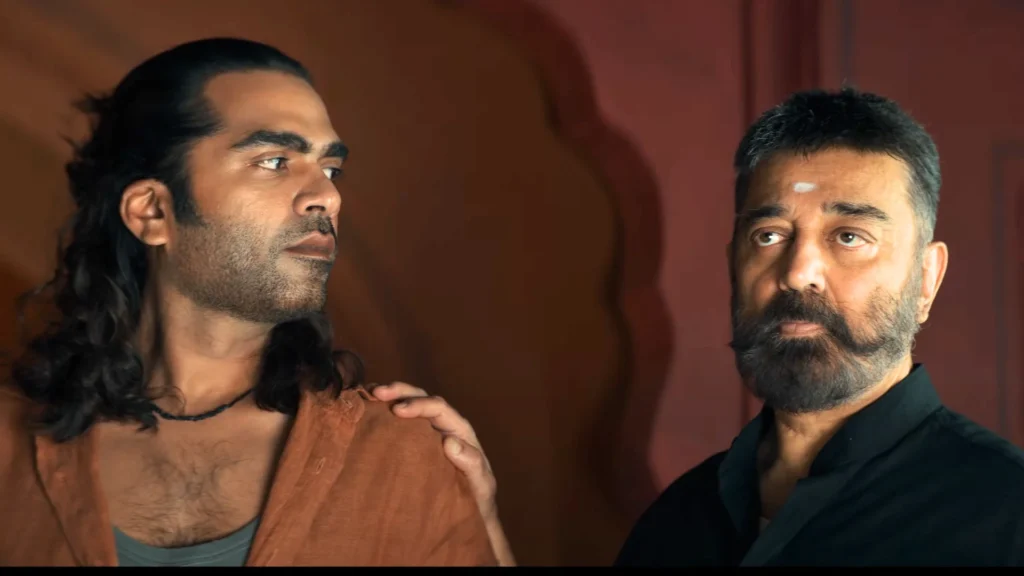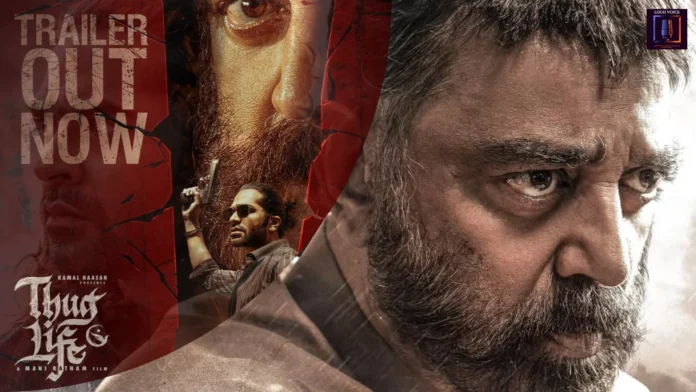Key Takeaways
- The Thug Life trailer, starring Kamal Haasan and directed by Mani Ratnam, has been unveiled ahead of its June 5 release.
- The film marks a long-awaited reunion between the actor and director nearly four decades after Nayakan.
- A specific scene featuring Kamal Haasan and Trisha has drawn criticism over their noticeable age gap.
- Online debates reignited concerns about industry double standards in Tamil and Telugu cinema.
- The trailer features gripping visuals, a star-studded cast, and a compelling AR Rahman soundtrack.
Introduction
Excitement swept through the Indian film community as the trailer for Thug Life, headlined by veteran actor Kamal Haasan and helmed by celebrated filmmaker Mani Ratnam, made its long-awaited debut. Slated for a theatrical release on June 5, the film has already ignited intense discussion online—not just for its scale and style, but also due to a divisive casting choice.
A Legendary Duo Reunites
Film enthusiasts had long speculated about the return of Kamal Haasan and Mani Ratnam as collaborators. Their last project together, Nayakan (1987), remains a timeless classic in Indian cinema. Decades later, their creative synergy is rekindled in Thug Life, a film that was originally developed under the title Amar Hai.
Haasan reportedly stated in an interview with The Hollywood Reporter India that Ratnam later refined the script after he had first written the story’s outline. He suggested that the writing process was less about co-authoring and more about creative layering, where each brought their strengths to the table.
High-Stakes Trailer: Power Plays, Betrayal, and Inner Conflict
The trailer for Thug Life opens with atmospheric narration hinting at themes of fate and duality. Kamal Haasan’s character is introduced as someone caught between loyalty and rebellion, portrayed through multiple personas that straddle protector and outlaw.

One of the most gripping sequences depicts a moment between Haasan’s character and Silambarasan TR (STR), where admiration quickly spirals into betrayal. STR is metaphorically referred to as the “king of the pride,” but this relationship takes a violent turn, suggesting deep-rooted conflict and a shifting power dynamic.
The film’s supporting cast is equally impressive, featuring Trisha Krishnan, Nasser, Sai Manjrekar, Abhirami, and Ashok Selvan. AR Rahman’s score reinforces the narrative with orchestral drama and tribal rhythms, enhancing the film’s dark and brooding tone.
Audience Reactions: Applause and Unease
Shortly after the trailer dropped, Kamal Haasan shared it across his social media platforms, encouraging fans to join the upcoming promotional “Thugfluencers” event scheduled for May 24 in Chennai. Enthusiastic responses poured in from fans who praised the cinematography, background score, and Haasan’s commanding screen presence.
But in the midst of all the praise, another discussion started to gain traction. Viewers, particularly from the Telugu-speaking audience, started pointing out what they saw as a double standard.
Age Gap Controversy Sparks Industry-Wide Reflection
A specific scene featuring Kamal Haasan and Trisha in a seemingly romantic context prompted netizens to question the age-appropriateness of such casting choices. Several online voices remarked that similar pairings in Telugu films—such as those involving Ravi Teja, Balakrishna, or Chiranjeevi—have often been met with sharp criticism, while Tamil cinema appears to escape equivalent scrutiny.
Some users suggested that audiences and critics were more forgiving when it came to Tamil film legends, implying an imbalance in how industry veterans are judged across regions. This revived a broader conversation around ageism, gender dynamics, and representation in Indian cinema.
Echoes from Recent Industry Events
This wasn’t the first instance where casting dynamics led to backlash. During a recent press interaction for Sikandar, actor Salman Khan had addressed similar criticism regarding his pairing with younger actress Rashmika Mandanna, defending the casting choices as a creative decision.
While Thug Life’s makers have yet to directly respond to the age gap discussion, it remains a trending topic, highlighting the evolving expectations of modern viewers.
A Film Rooted in Legacy and Reinvention
Beyond the controversy, Thug Life is positioned as a genre-defying gangster epic that merges old-school storytelling with contemporary themes. Kamal Haasan’s dialogue toward the end of the trailer—hinting at a long-standing dance with mortality—underscores the film’s philosophical undertone.
The narrative appears to explore identity, betrayal, and moral ambiguity, supported by Mani Ratnam’s nuanced direction and AR Rahman’s evocative compositions. With Silambarasan representing a new-age protagonist and the ensemble bridging generations, the film balances mass appeal with cinematic depth.
Conclusion
Thug Life is not just another high-octane gangster saga. It is a symbolic reunion between two of Indian entertainment industry most influential figures—Kamal Haasan and Mani Ratnam. While the trailer has garnered praise for its execution and ensemble strength, it has also opened the door for important conversations about age representation and industry standards.
As the film approaches its theatrical release on June 5, it remains to be seen how audiences will reconcile their excitement with their evolving social expectations. But one thing is clear: Thug Life is already one of 2025’s most talked-about films.


